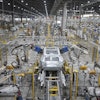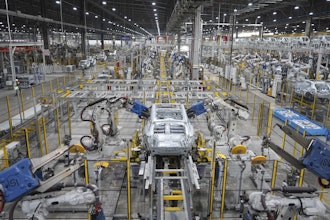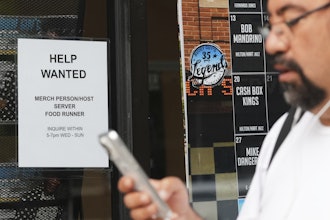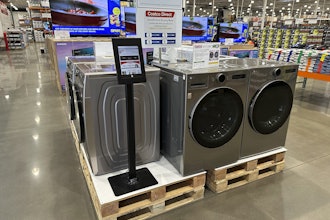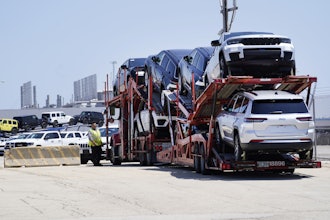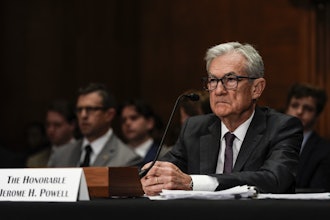
OMAHA, Neb. (AP) — Canadian Pacific railroad continued its assault on rival Canadian National's competing $33.7 billion bid to buy Kansas City Southern railroad Wednesday in a formal letter to regulators.
Canadian Pacific urged the Surface Transportation Board to closely examine Canadian National's offer to buy Kansas City Southern. It says the deal would hurt rail competition throughout the central United States and could destabilize the balance between the industry's six largest players.
Canadian National, meanwhile, maintains that the bid it announced Tuesday is superior to the $25 billion cash and stock deal that Canadian Pacific announced last month.
Canadian Pacific said competition would be hurt by the rival deal because Canadian National and Kansas City Southern both have rail lines that connect the Midwest with the Gulf Coast, so combining those two railroads would eliminate a competitor. Canadian Pacific's network connects to Kansas City Southern in Kansas City, Missouri, but those two railroads don't overlap elsewhere.
"Canadian Pacific respectfully suggests that the Board should see things the same way: the only combination involving KCS that is in the public interest is the one that Canadian Pacific has proposed, and which has already garnered support from over 400 shippers and other stakeholders," Canadian Pacific's attorney David Meyer wrote.
Canadian National has said its bid is better because it offers a stronger network to combine with Kansas City Southern and more cash for shareholders. CN said its offer is worth $325 per Kansas City Southern share. Kansas City Southern shareholders would receive $200 in cash and 1.059 shares of CN common stock for each share. In contrast, Canadian Pacific's current offer values Kansas City Southern at $275 per share, which includes $90 cash and 0.489 shares of CP stock.
"Together, CN and KCS would offer multiple interchanges and create greater choice and service options for customers of both companies. Customers will benefit from a faster, more direct and more efficient network of end-to-end single-line services from Mexico to the United States to Canada," Canadian National said Wednesday.
Canadian Pacific CEO Keith Creel touted the benefits of his railroad's offer in a conference call with investors Wednesday, and said he doesn't plan to increase it at this point. Canadian National's offer is eye-catching, he said. But he said that he doesn't think investors will ever see Canadian National's larger payment because regulators won't approve the deal.
"The headline value could be 500 percent more than our real attainable value. It's fantasy money. It's fool's gold," Creel said about Canadian National's offer. "When it gets down to truly comparing the deals ... it comes down to doability. It comes down to can you get the deal done?"
Both Canadian National and Canadian Pacific have created websites highlighting the benefits of their offers. Edward Jones analyst Jeff Windau said Canadian Pacific's sharp criticism of Canadian National's offer hints at how much that railroad wants the growth opportunities that would come with buying Kansas City Southern.
"I think CP's quick and pointed response helps to show how important the merger is to them," Windau said. Kansas City Southern has said its board will review both proposals and respond later. Previously, KCS's board unanimously endorsed Canadian Pacific's bid.
The Surface Transportation Board hasn't approved any major railroad mergers since the 1990s. It has generally said that any deal involving one of the nation's six largest railroads needs to enhance competition and serve the public interest to get approved.
For more than two decades, the railroad industry has been stable, with two railroads in the western United States — BNSF and Union Pacific — two in the eastern United States — CSX and Norfolk Southern — and the two Canadian railroads that serve part of the United States. "Completion of a CN acquisition of KCS would create tremendous strategic pressure for CP to find a way to expand its market reach through further consolidation," Meyer said to regulators.

